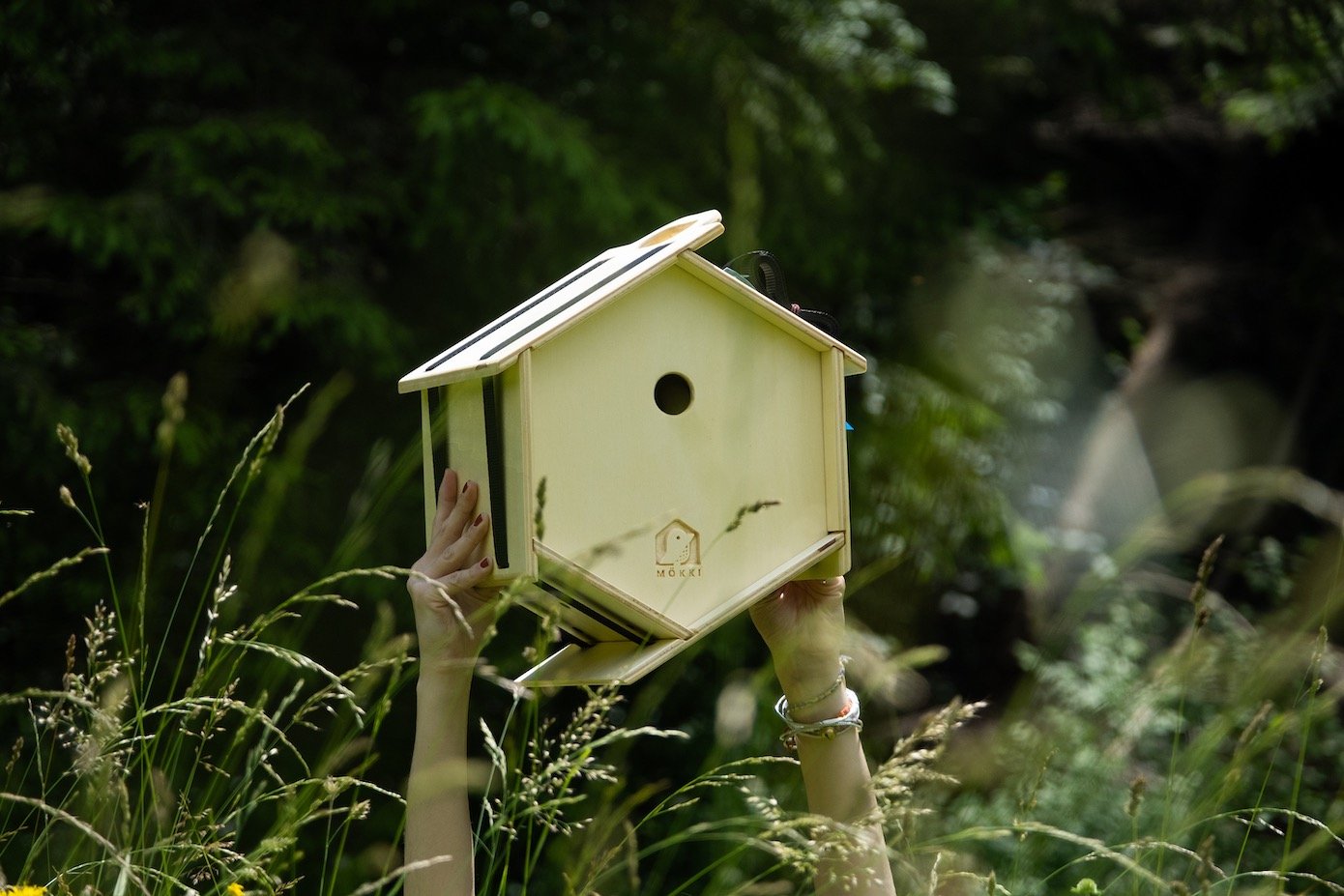Edit Content
CREATE YOUR OWN BIODIVERSE GARDEN TODAY!
Subscribe to our newsletter and download our comprehensive guide to start fostering a garden that supports local ecosystems and enriches your personal well-being.
Subscribe to our newsletter and download our comprehensive guide to start fostering a garden that supports local ecosystems and enriches your personal well-being.
It guarantees the resilience of ecosystems, the purification of air and water, the fertility of the soil and the pollination of plants. Each species has a unique and irreplaceable role, helping to maintain the natural balance.
It guarantees the resilience of ecosystems, the purification of air and water, the fertility of the soil and the pollination of plants. Each species has a unique and irreplaceable role, helping to maintain the natural balance.

MÖKKI feeders and houses support local biodiversity by providing shelter and food for birds and insects. These small interventions increase the presence of pollinators and useful species, improving the health of gardens and green spaces.
“Every small gesture for nature is a big step for the future”.
– Jane Goodall
Biodiversity encompasses the different species of plants, animals, fungi, and microorganisms that make up our natural world. It includes not only the diversity within species (genetic diversity) but also the diversity between species and the diversity of ecosystems.
Biodiversity plays a crucial role in ecosystem function and human survival. Here are some of the key reasons why it is vital.
Before you start enhancing biodiversity in your garden, it's important to understand the existing conditions and resources. Consider the following:
- Soil Type and Quality: Test your soil to determine its composition and nutrient levels. This will help you select appropriate plants.
- Sunlight and Shade: Observe how much sunlight different areas of your garden receive throughout the day.
- Water Availability: Assess the natural water sources and drainage patterns in your garden.
- Existing Vegetation: Take note of the plants that are already growing and their health.
Native plants are species that have evolved in a particular region and are adapted to the local climate and soil conditions. They provide the best support for local wildlife and help maintain the ecological balance.
Benefits of Native Plants
- Support Local Wildlife: Native plants provide food and habitat for local birds, insects, and other animals.
- Low Maintenance: They require less water, fertilizers, and pesticides because they are adapted to local conditions.
- Resilience: Native plants are more resistant to local pests and diseases.
How to Choose Native Plants
- Research: Identify the native plant species in your region. Local gardening centers, native plant societies, and extension services are good resources.
- Diversity: Aim for a diverse mix of plants that provide various resources such as nectar, seeds, and shelter throughout the year.
- Layering: Incorporate plants of different heights and structures to create a multi-layered habitat.
A biodiverse garden should cater to a variety of species, including birds, insects, and small mammals. Here are some design tips.
Birds
- Plant Diversity: Include a mix of trees, shrubs, and herbaceous plants to provide food and shelter.
- Water Sources: Install birdbaths or small ponds to provide drinking and bathing water.
- Nesting Sites: Provide birdhouses and nesting materials.
Insects
- Pollinator Plants: Plant flowers that attract bees, butterflies, and other pollinators.
- Insect Hotels: Create or buy insect hotels to provide habitats for beneficial insects.
- Avoid Pesticides: Use organic pest control methods to protect beneficial insects.
Small Mammals
- Shelter: Provide logs, rock piles, and dense shrubs where small mammals can hide and nest.
- Food Sources: Plant fruit-bearing trees and shrubs that produce nuts and berries.
A garden that promotes biodiversity can have a positive impact on the local ecosystem. By providing habitats and resources for various species, you contribute to the overall health and stability of the environment.
Caring for a biodiverse garden offers numerous benefits for personal well-being.

Promoting biodiversity in your garden is a rewarding endeavor that benefits both the environment and your personal well-being. By understanding the importance of biodiversity, choosing native plants, and designing your garden to support various species, you can create a thriving ecosystem in your own backyard. Join us in our mission to protect and enhance biodiversity by making your garden a sanctuary for nature.
“The earth is what we all have in common”.
– Wendell Berry
Have questions or need assistance? We’re here to help. Contact us through our form, email, or social media channels.
Don’t miss our future updates! Sign up today to receive news, guides and free resources to protect biodiversity.
Ulap s.r.l.s.
via G. Cis, 4 – 38067 Ledro (TN) – Italy
+39 0464 1850693 | hello@ulapdesign.com
COPYRIGHT ©2024-2025 ULAP S.R.L.S. | ALL RIGHTS RESERVED